What Media Got Wrong About the ‘Largest Gang Takedown Ever’
Dozens condemned by New York news reports during the now infamous “Bronx 120 gang raid” were not actually gang members.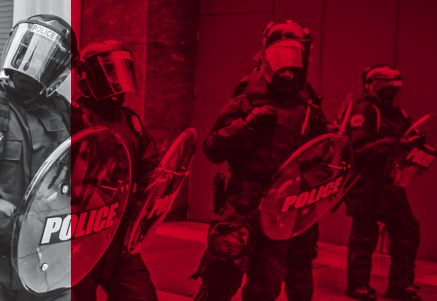 Screen shot / Bronx 120 Report
Screen shot / Bronx 120 Report

Bronx 120 Report (4/19)
In the immediate wake of the now infamous “Bronx 120 gang raid,” carried out by the Department of Homeland Security, the FBI and the NYPD on the Eastchester Gardens and Edenwald House housing projects in New York City’s Bronx on April 27, 2016, New York media uncritically and predictably repeated the NYPD and federal prosecutors’ claim that all those arrested were “gang members”—a sprawling conspiracy of murderers, drug dealers and gun runners “taken down” by authorities.
As FAIR (5/2/16) noted at the time, the breathless coverage by outlets like the Daily News, New York Post, New York Times and local TV news was a toxic combination of credulous and racist:
The Daily News (4/28/16) kicked it off with the most salacious and prejudicial headlines:
87 Bronx Gang Members Responsible for Nine Years of Murders and Drug-Dealing Charged in Largest Takedown in NYC History
“Eighty-seven gang members”—every one of them “responsible” for “murders and drug dealing”—no evidence necessary.
No “allegedly,” no quotes around the claims, no question at all that these people—whose faces are forever plastered online as murderers and drug dealers—could possibly be innocent of the crimes in question. The Daily News, based solely on the word of federal prosecutors, left no doubt in the reader’s mind that these people were guilty.
It turns out, however, that even using the most conservative criteria, the majority of those arrested were not “gang members” at all.
A report released Thursday, co-authored by CUNY law professor Babe Howell and CUNY graduate student Priscilla Bustamante, found that more than half of the 120 indicted were never alleged by federal prosecutors to be in a gang. The “largest gang takedown ever,” as The Intercept’s Alice Speri notes (4/25/19), was mostly not about “gang members”:
While the Bronx 120 were all painted as dangerous gang members, the report reveals that fewer than half of them were actually accused of being gang members in prosecutors’ sentencing submissions, including four who contested the allegation in their own submissions. Seventeen people were described as being “associated with” gangs, for instance, because they were selling marijuana in gang territory. Thirty-four were affirmatively described in prosecutors’ submissions as not being gang members at all, and there was no reference to gang membership for 13 others. But that didn’t prevent all 120 from being paraded in front of the media and mostly denied bail as gang members.
It’s important to note that even if all 120 were in a gang, it still wouldn’t have justified the raid or the racist, cartoonish media coverage. Being in a gang, as the report’s co-author Howell pointed out to The Intercept, is “not a crime…. You shouldn’t be prosecuted simply because of association.” Even granting this, however, the primary hook, the main headline, the thing that justified hundreds of military-geared men raiding public housing at 6 AM—that it was all necessary to fight a sprawling “gang”—wasn’t true.

From the Bronx 120 Report
Were there some members in a formal “gang”? Yes, according to prosecutors. But crime-fighting, and by extension the coverage of crime, isn’t a batting average. You don’t get to bat .440, wrongfully smear 56 percent of the people being accused and plastered all over the internet and your front page, and call it a day. As New York activist and frequent FAIR contributor Josmar Trujillo points out, this whole episode should make journalists and editors press pause on the enterprise of taking the NYPD and federal authorities at their word, and the broader panic around “gang raids” in general.
“This report should make us question our knee-jerk reactions around ‘gangs,’” he wrote Thursday in AMNY (4/25/19):
While there is loose talk now of ending mass incarceration, the continued use of conspiracy laws in poor communities of color like an atomic bomb is not justice. We’ve clearly over-criminalized black and Latino youth across the board, but RICO is particularly harsh and inappropriate.
Leading the propaganda charge at the time was US Attorney Preet Bharara, who stood in front of sexed-up war maps of the Bronx that, in the media’s eye, turned public housing occupied mostly by black New Yorkers into a combat zone, justifying the “pre dawn raid.” These were no longer citizens, but combatants; the Bronx projects, a war zone requiring military-like invasion.

These propaganda maps were, months prior, provided by the US attorney’s office and NYPD to theDaily News, which created an interactive map so their readers could see which scary gangs lurked in their area. Daily News coverage the day of the raid linked to this widget, so as to strike tech-savvy fear into the hearts of those reading the thrilling “gang raid” coverage.
The reality, it turns out, wasn’t that simple. What the report shows is messy, haphazard overreach by authorities that relied, in part, on a media spectacle that pandered to racist stereotypes and assumptions of guilt. Who knows if the color-coded areas provided by Bharara and the NYPD actually correlated with “gang control”? Since the majority of those arrested in the Largest Gang Takedown Ever™ weren’t actually in a gang, one can reasonably suspect these maps were just generalized, PR-driven marketing materials.
Indeed, we know, based on emails obtained by reporter George Joseph through FOIA requests, that those who carried out the raid openly discussed the media angle. ICE officials, immediately before and after April 27, praised the PR savvy of the operation. “This takedown will most likely be the largest Gang Takedown ever for the Southern District of New York and generate some significant media attention,” one Homeland Security special agent wrote to a colleague in an April 6 email. “It has more media interest than I can catalogue and the story was picked up worldwide,” another ICE official wrote on April 29, two days after the mass arrests.
These high profile “gang raids” are, above all, PR operations designed to help pad budgets and justify unusually harsh prosecutions. It’s not until years later, after trials and FOIAs and academic reports, that we learn how thin the narrative really was. But by then it’s too late.

Will any of the prosecutors and reporters who oversold the simplistic “gang raid” narrative at the time, unduly smearing the names of dozens of black New Yorkers, be held accountable? Will Preet Bharara, who has since left the US attorney’s office and rebranded himself a woke defender of democracy in the age of Trump, who goes on MSNBC to recite platitudes about the “rule of law,” be asked to justify his role in the smear? Will Daily News reporters Victoria Bekiempis, Thomas Tracyand Larry Mcshane, who didn’t even bother using modifiers like “alleged” or “according to police,” but simply plastered people’s faces on the front page, labeling them “violent hoodlums” and “unrepentant gangbangers,” be asked to explain why they acted as stenographers for this racist sham?
Not likely. Poor black and brown people are, as a matter of course, expendable and unimportant to our media. No one who smeared these people, or called them “gangbangers”—indelibly associating their names and faces with murder and drug-dealing online forever—will be asked to explain, much less account for the harm they caused. Those plastered on the front pages of the Daily News and countless websites are collateral damage, a cost of doing business so careerist reporters and high-status prosecutors-turned-pundits like Bharara can polish their resumes and move on to the next publicity hustle.
Your support is crucial…With an uncertain future and a new administration casting doubt on press freedoms, the danger is clear: The truth is at risk.
Now is the time to give. Your tax-deductible support allows us to dig deeper, delivering fearless investigative reporting and analysis that exposes what’s really happening — without compromise.
Stand with our courageous journalists. Donate today to protect a free press, uphold democracy and unearth untold stories.

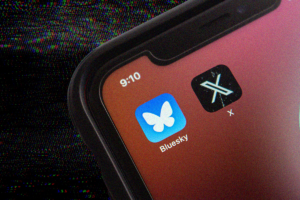
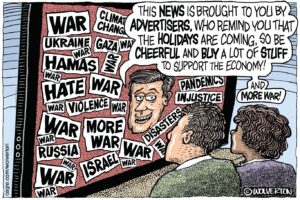
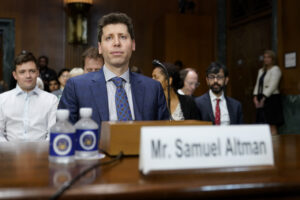

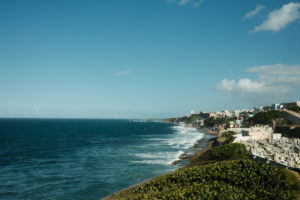
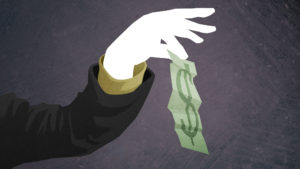


You need to be a supporter to comment.
There are currently no responses to this article.
Be the first to respond.